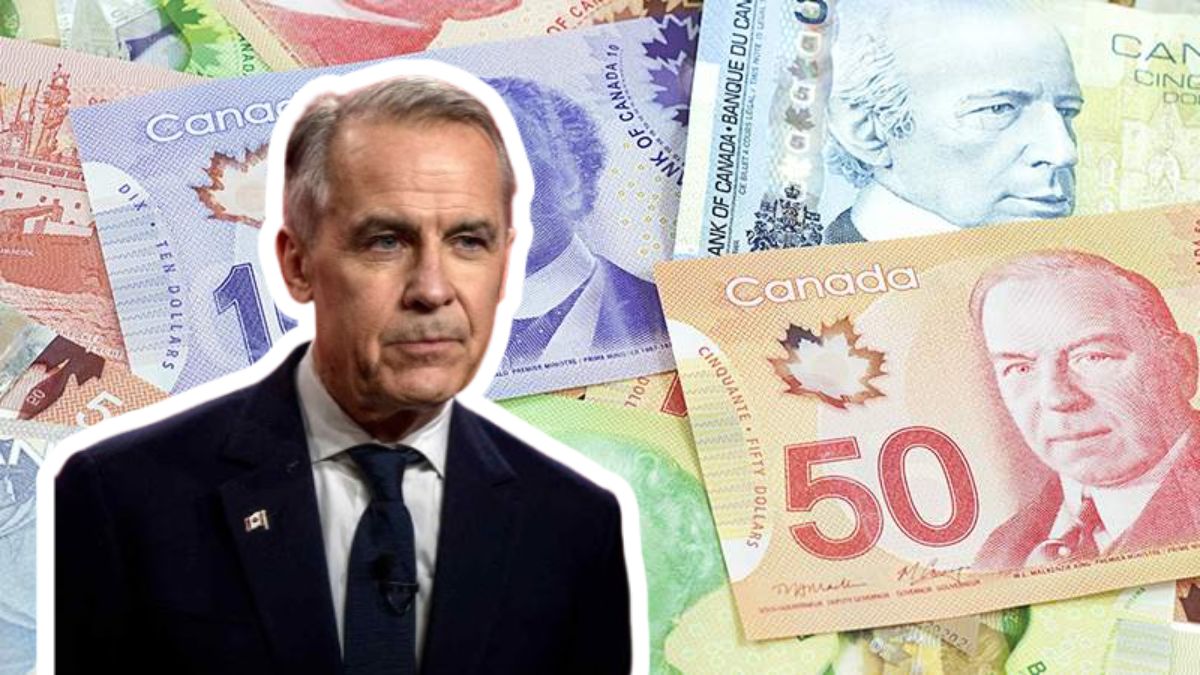Canadian households are set to receive significant financial relief in 2025, as the Canada Revenue Agency (CRA) rolls out its new \$3000 GST rebate. Designed to help families and individuals cope with persistent inflation and high living costs, the program marks one of the most substantial expansions of the Goods and Services Tax (GST) credit in recent memory.
Instead of the modest annual GST refunds Canadians were used to in the past, the upgraded rebate provides as much as \$750 every quarter—adding up to \$3000 for the year. For millions of households, this money will provide crucial breathing space to cover groceries, rent, utilities, and transportation costs.
Here’s a complete breakdown of what this benefit means, who qualifies, when payments will arrive, and how Canadians can make sure they don’t miss out.
What Is the \$3,000 GST Rebate?
The GST rebate 2025 is a direct expansion of the federal GST/HST credit, which was originally created to refund part of the GST paid on purchases for lower- and middle-income Canadians.
- Old GST credit amounts: Typically ranged from \$300 to \$500 annually, depending on income and family size.
- New program: Boosts annual payments up to \$3000 per household.
The rebate is tax-free and requires no separate application. The CRA determines eligibility automatically based on income tax filings.
Why the Federal Government Introduced the Increase
The move comes at a time when Canadians are facing stubbornly high food prices, rent increases, and elevated utility costs. Inflation has slowed compared to its 2022 peak, but household budgets remain stretched.
By tripling the size of the GST credit, the government is signaling its intent to:
- Provide immediate relief to families struggling with day-to-day expenses
- Ensure lower- and middle-income households aren’t disproportionately hurt by inflation
- Support single parents, seniors, and workers living paycheque-to-paycheque
- Deliver quarterly, predictable cash infusions that align with household budgeting cycles
For many families, this rebate is more than a tax adjustment—it’s a lifeline.
Who Qualifies for the \$3000 GST Rebate?
Eligibility is tied to income thresholds and household composition. To receive the credit, you must:
- Be a Canadian resident for tax purposes
- Be 19 years or older
- File your 2024 tax return (even with no income)
- Fall below the CRA’s income thresholds for either the full or partial benefit
Here’s a breakdown of the maximum income levels for 2025:
| Household Type | Full Benefit Threshold | Partial Benefit Threshold |
|---|---|---|
| Single individual | Up to \$38000 | Up to \$52000 |
| Married/Common-law couple | Up to \$45000 | Up to \$65000 |
| With 1 child | Up to \$48000 | Up to \$68000 |
| With 2+ children | Up to \$52000 | Up to \$72000 |
Households above the partial benefit line will not qualify. However, the CRA encourages all Canadians to file taxes, since eligibility is automatically calculated.
How Much Will Families Receive?
The maximum benefit is \$3000 per year, distributed evenly across four payments:
- Quarterly payment: Up to \$750
- Annual total: \$3000
Exact amounts depend on:
- Income level (full or partial eligibility)
- Family size (single, couple, or with dependents)
- Province of residence (certain provincial supplements may apply)
Even households that don’t qualify for the full amount could still receive hundreds of dollars quarterly, depending on where their income falls relative to the thresholds.
Payment Schedule for 2025
The CRA has confirmed the following GST rebate payment dates for 2025:
- January 5, 2025
- April 4, 2025
- July 4, 2025
- October 3, 2025
Payments will arrive via direct deposit for those enrolled, or by cheque in the mail for others. Direct deposit is strongly recommended to avoid delays.
How to Apply for the GST Rebate
There is no separate application process. Eligibility is determined when you file your 2024 income tax return. To ensure you’re included:
- File your taxes on time – Even if you had no income in 2024.
- Update marital and dependent status – Report changes in family size, custody, or marital status.
- Provide accurate banking details – Set up or update direct deposit with CRA to avoid mail delays.
- New residents or newly eligible individuals – Must complete CRA Form RC151 to register.
Why Filing Taxes Is Essential
Even if your income is below the taxable threshold, filing your 2024 return is the only way to ensure the CRA evaluates your household for the rebate. Missing the deadline could mean missing out on up to \$3,000 in tax-free support.
How the Rebate Supports Canadian Families
The CRA estimates that millions of Canadians will benefit, with particular impact on:
- Seniors living on fixed incomes
- Single parents balancing work and childcare
- Low-income workers paying rising rents
- Families with multiple children, where costs have multiplied in recent years
The rebate isn’t just financial assistance—it’s also psychological relief, offering predictability and stability amid economic uncertainty.
Common Mistakes That Could Delay Payments
To avoid missing a payment, households should avoid:
- Filing taxes late or incomplete
- Providing an outdated address if relying on mailed cheques
- Forgetting to update marital status (marriage, divorce, separation)
- Not reporting dependents or custody arrangements correctly
- Ignoring CRA requests for additional information
Simple errors can push payments back by weeks, so accuracy matters.
Bigger Picture – How the GST Rebate Fits into Canada’s Social Safety Net
The \$3,000 GST rebate is part of a larger framework of federal supports, which includes:
- Canada Child Benefit (CCB): Up to \$648.91 monthly per child under 6, \$547.50 for children 6–17
- Canada Family Benefit (CFB): Launched in 2025, paying up to \$445 per child monthly
- Canada Carbon Rebate (CCR): Quarterly payments to offset federal carbon tax, amount varies by province
- Old Age Security (OAS) & CPP: Pension benefits for seniors
Together, these benefits can add thousands of dollars annually to household budgets. The GST rebate expansion is particularly impactful because it reaches adults without children as well—singles and couples who often receive less targeted support.
Key Takeaways
- The CRA \$3,000 GST rebate begins in January 2025, with quarterly payments of up to \$750.
- Eligibility depends on income and household size, with full benefits for households under \$38,000–\$52,000 (single/couple) or up to \$72,000 (with children).
- Canadians must file their 2024 taxes to qualify.
- Payments are automatic—no separate application is required.
- Direct deposit ensures faster and more secure access to funds.
5 SEO-Friendly FAQs
Q1: How much is the CRA GST rebate in 2025?
A1: Eligible households can receive up to \$3,000 annually, paid in four installments of up to \$750 each quarter.
Q2: Who qualifies for the GST rebate in 2025?
A2: Canadian residents aged 19+ with 2024 incomes below set thresholds (\$38,000 for singles, \$45,000 for couples, higher with children) qualify for full or partial benefits.
Q3: When are the GST rebate payments in 2025?
A3: Payments will be made on January 5, April 4, July 4, and October 3, 2025.
Q4: Do I need to apply separately for the rebate?
A4: No. Eligibility is automatic when you file your 2024 taxes. New residents or first-time applicants must complete CRA Form RC151.
Q5: How will I receive the payments?
A5: Payments are issued through direct deposit (recommended) or by mailed cheque if no banking information is provided.










